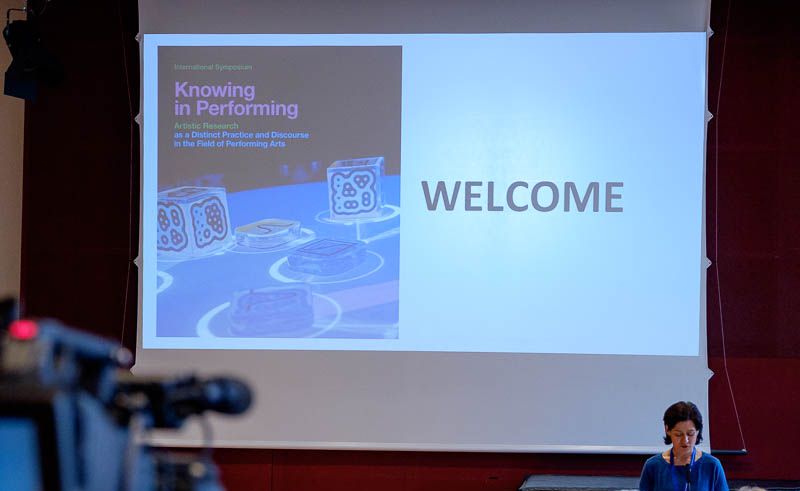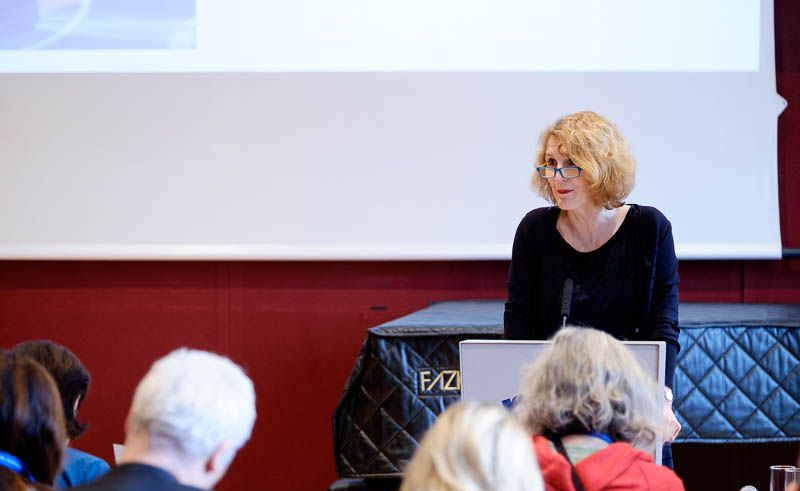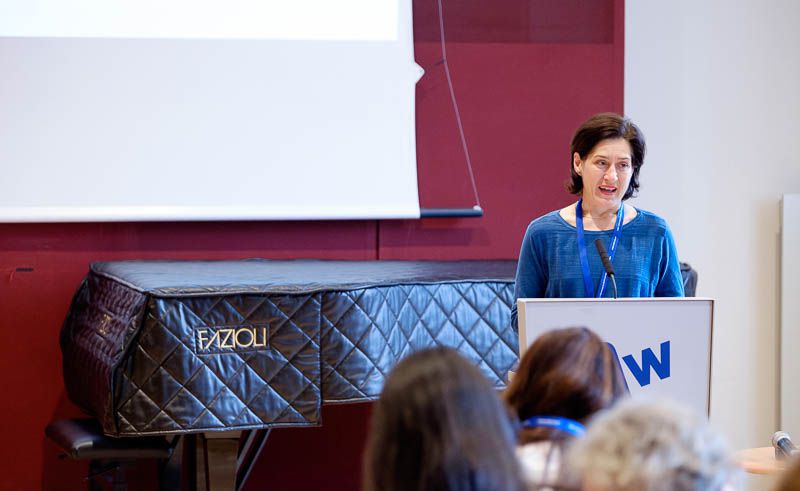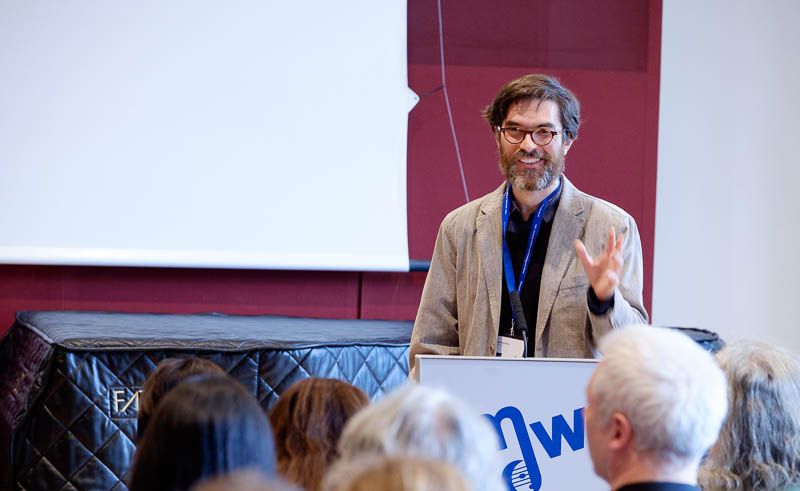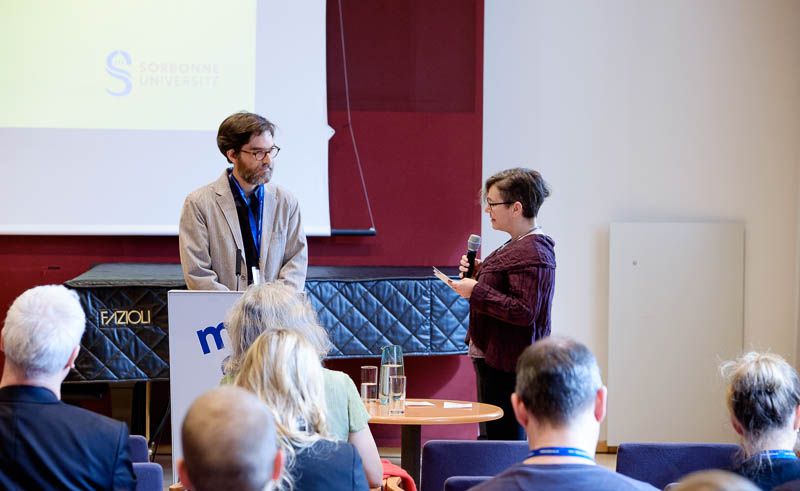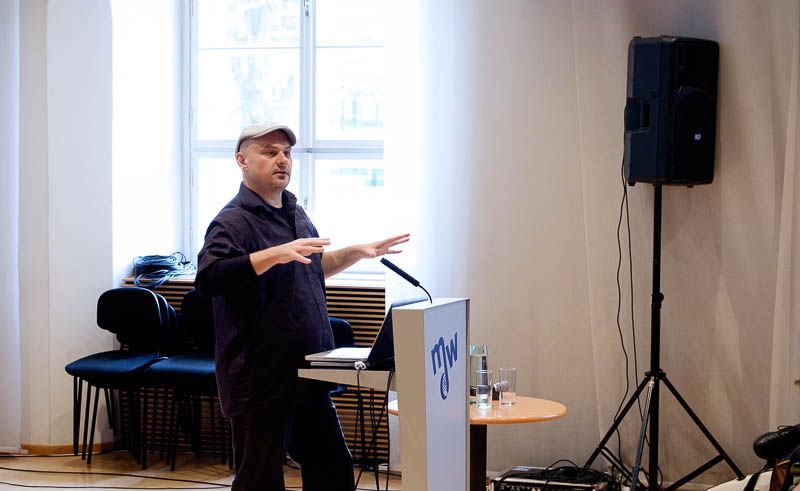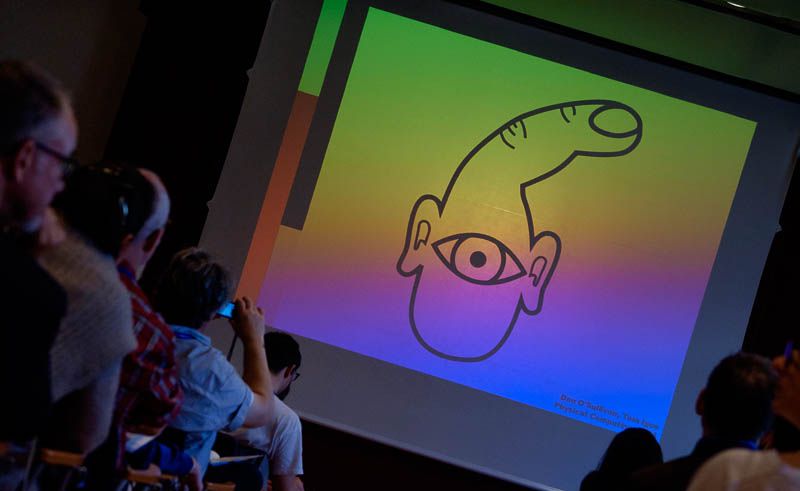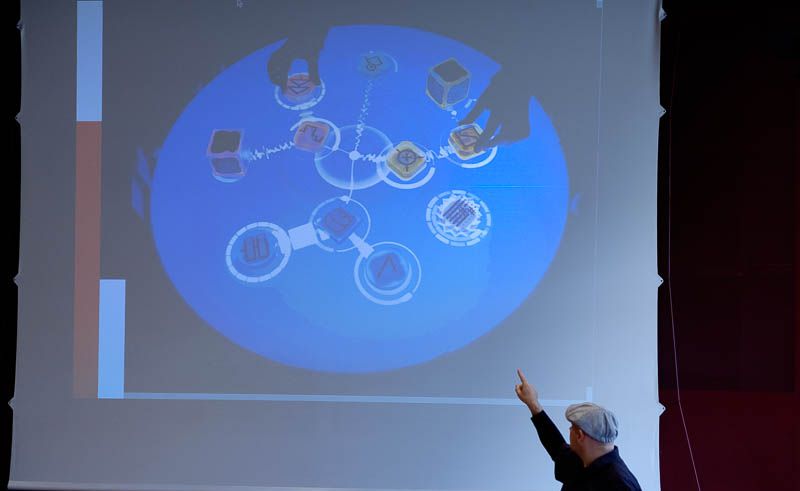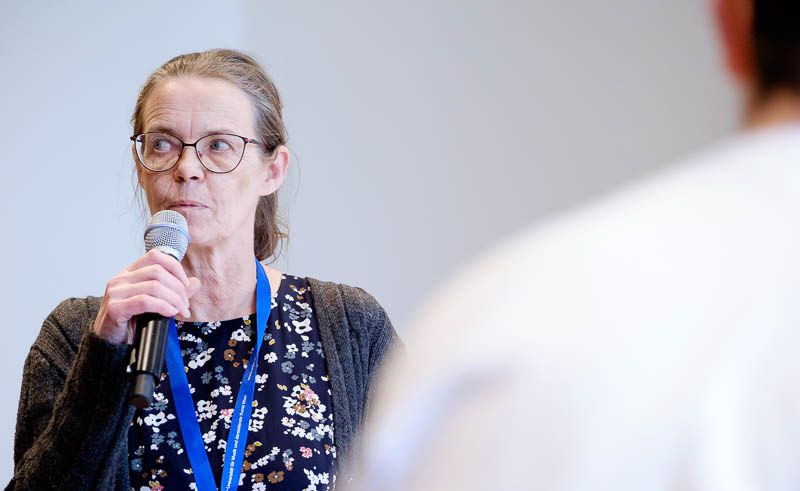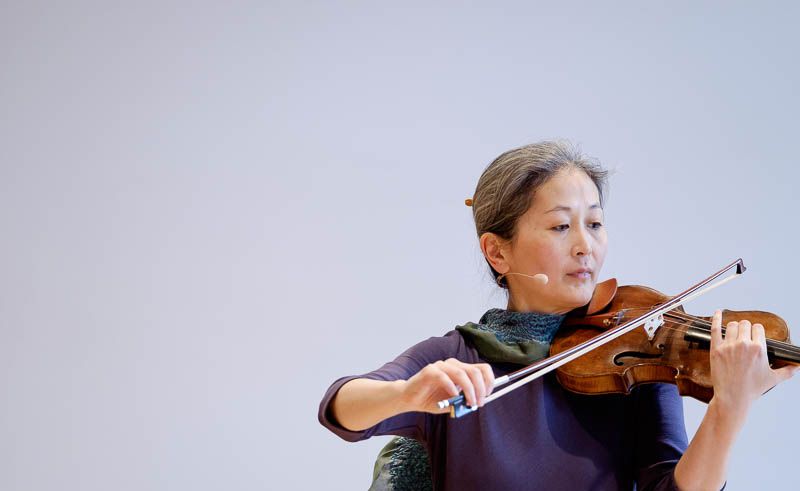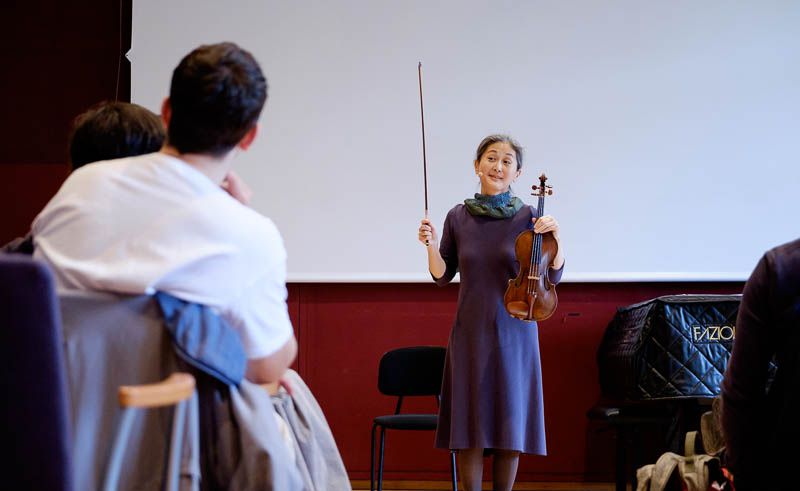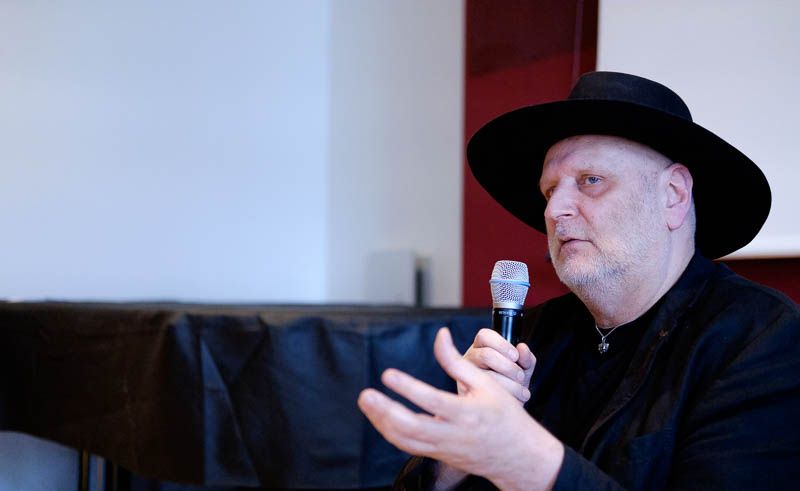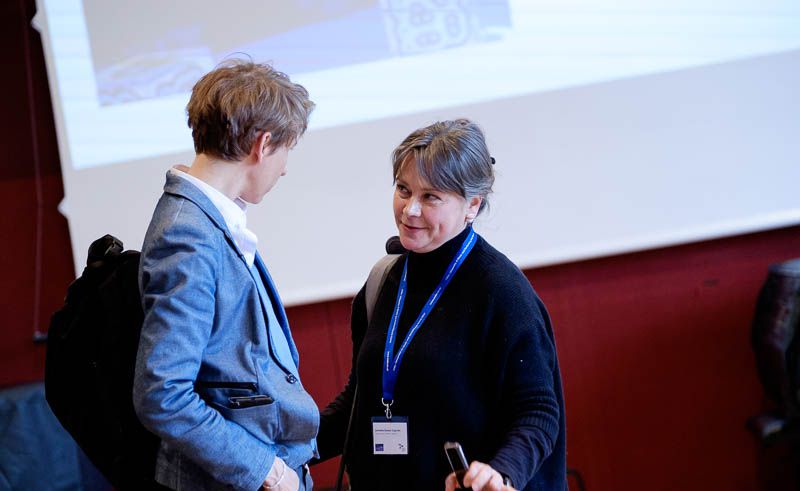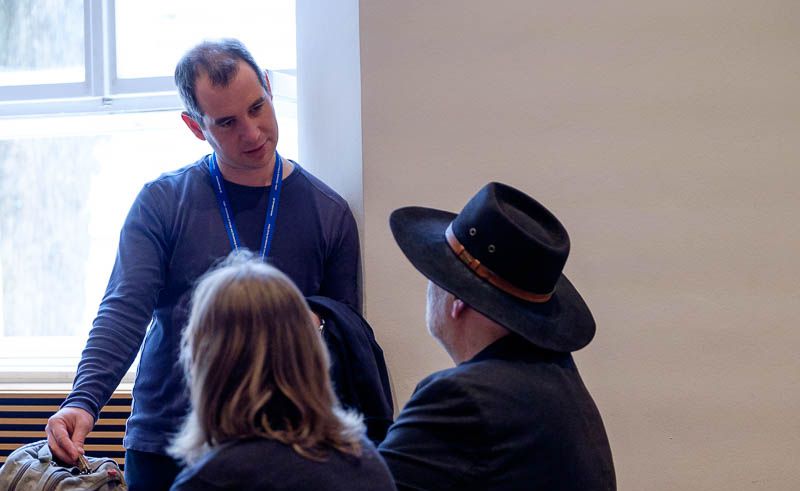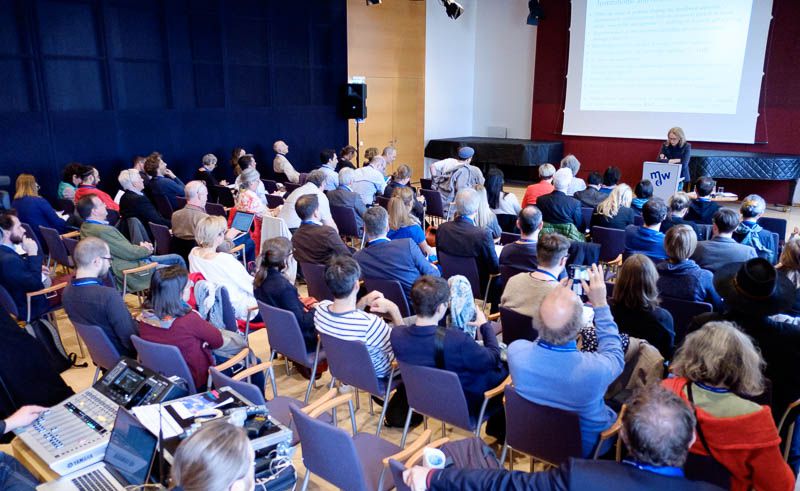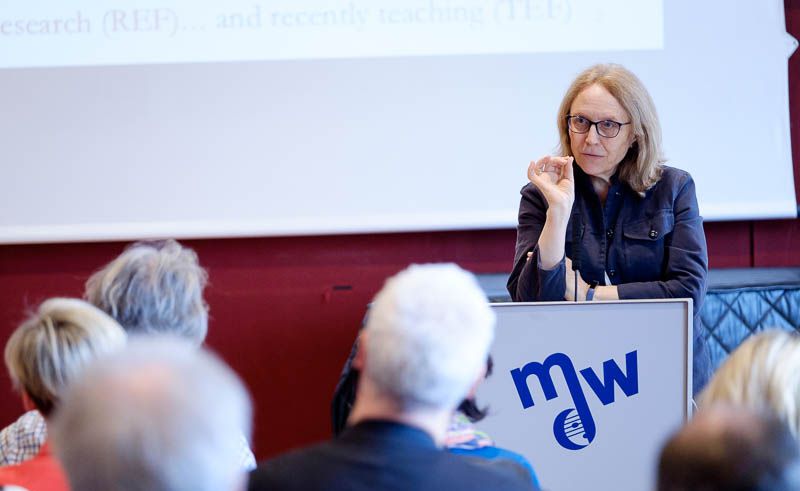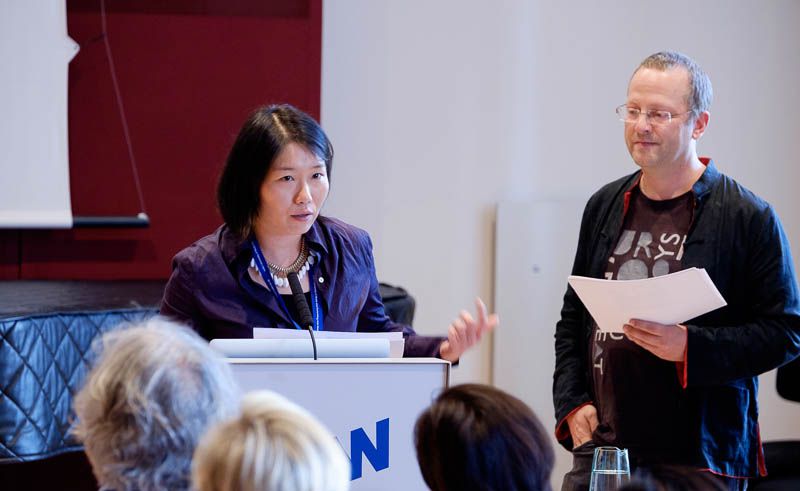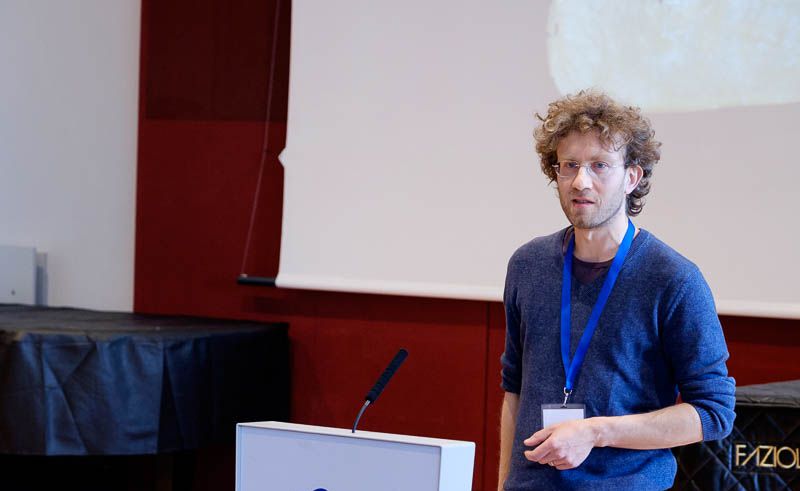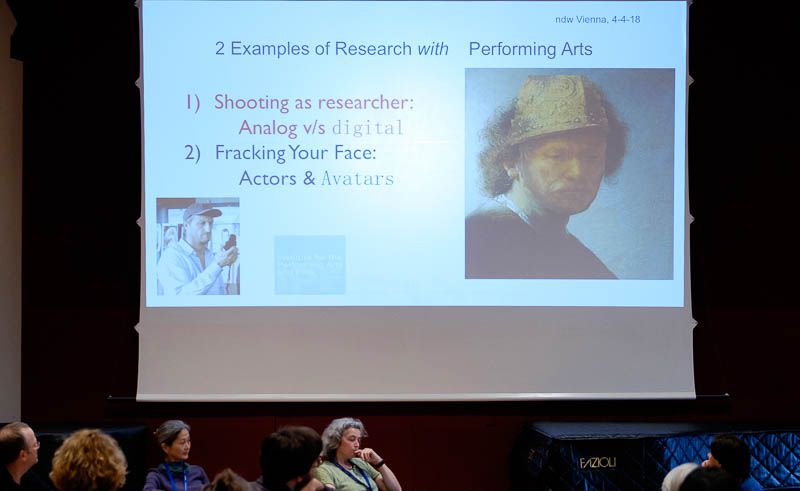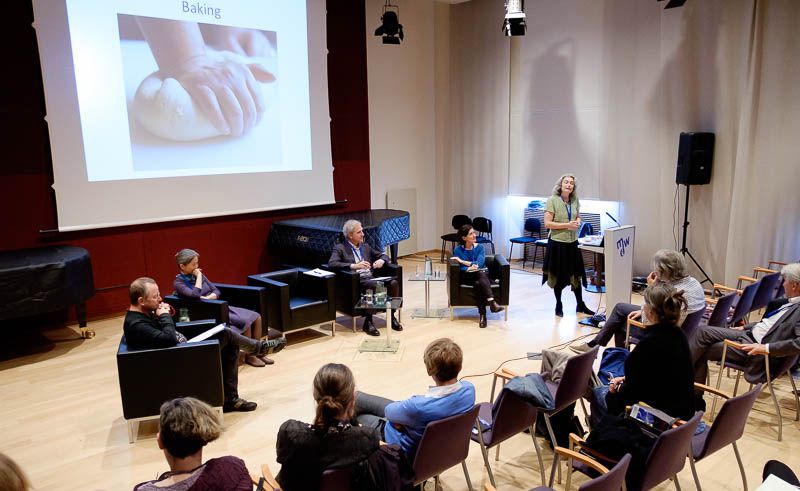The International Symposium Knowing in Performing. Artistic Research as a Distinct Practice and Discourse in the Field of Performing Arts
The symposium Knowing in Performing, held on 4 April 2018 at the mdw, aimed to shed light on the broad field that is artistic research. The focus was on specific options for employing artistic research in the performing arts as well as on the question of how it might be sensibly integrated into curricula and university structures.
Following a welcoming statement by mdw Rector Ulrike Sych and introductory remarks by Therese Kaufmann (Research Promotion, mdw), the keynote address by Nicolas Donin (IRCAM, Paris)—From an Anti-Theoretical Stance to the Artistic Research Method (Chair: Annegret Huber, mdw)—immediately spoke to the occasionally controversial nature of artistic research with the words “I don’t know what AR is / I know what AR is.” There exist simply too many definitions, he said, which makes it more difficult to integrate artistic research into university curricula. Donin continued by describing how the concept of “self-analysis” functions: protocolling and recording the working process of composers, conductors, and/or musicians enables precisely these individuals to engage in self-reflection and analyse the processes by which they work. This results in a “bottom-up generalisation process” that is diametrically opposed to the traditional ways in which theories are generated. The discussion to which this then gave rise quickly made clear just how different not only notions of AR, but also ideas about the dimensions and relevance of self-analytical methods can be.
With a lecture entitled Post-Digital Lutherie at the Tangible Music Lab (Chair: Peter Plessas, mdw), Martin Kaltenbrunner (University of Art and Design Linz) presented his work on post-digital instruments. Following a brief historical retrospective that dealt with the relationship between human beings and machines since the Industrial Revolution, he described the process by which several post-digital instruments of his—including the “reactable”—had been created. And to the audience’s amusement, he also provided a concrete example by introducing an ongoing project in which research on the behavioural patterns of parrots is being conducted as an artistic process that involves post-digital instruments.
In her lecture Quiet is Beautiful (Chair: Gesine Schröder), Mieko Kanno (UniArts, Helsinki) described the concept of “soft sound” that one encounters in contemporary music. Kanno held that composers, by calling for playing techniques that produce sounds situated on the very threshold of perceptibility, have had a lasting impact on the way people hear things. She then drove her point home quite impressively by performing Salvatore Sciarrino’s Capriccio di una corda on the violin.
In his lecture Risking One’s Own Sovereignty: Transdisciplinary Research, Context-Oriented Perfomances and the Work of Theater der Versammlung (Theatre of Assemblage) (Chair: Doris Ingrisch, mdw), Jörg Holkenbrink (Centre for Performance Studies, University of Bremen) reported on his work at Theater der Versammlung. There, he aims to effect collaboration between actors and researchers under altered conditions and with altered roles, which can indeed lead to unexpected results. The question-and-answer session that ensued was done as an improvised (theatrical) performance—and similarly unexpected insights were the result.
Georgina Born (University of Oxford) delivered the symposium’s second keynote address, Artistic Research, Music Research and Inter/Transdisciplinarity: Strengths, Limitations and Institutional Conditions (Chair: Tasos Zembylas, mdw), which shed a great deal of light on the institutional and historical background of AR in Great Britain. Born viewed AR as having been institutionalised in Great Britain during the 1990s, a period that witnessed deep-cutting structural changes to the country’s academic university landscape. She also described various concepts of interdisciplinarity with reference to several typical examples of case studies that she had carried out as part of her ethnographic research—case studies that, in her opinion, represent successful examples of AR in practice.
There followed the presentation of two mdw research projects (conducted under the aegis of PEEK). Creative (Mis)Understandings – Methodologies of Inspiration by Johannes Kretz and Wei-Ya Lin attempts the tightrope walk between research and art by means of transcultural and dialogue-based knowledge generation methods and compositional processes in order to deal with the indigenous Taiwanese minority of the Tao. Thomas Grill’s project Rotting Sounds – Embracing the Temporal Deterioration of Digital Audio, on the other hand, deals with the phenomenon of information loss in digital media and the integration of such loss in new artistic and aesthetic concepts.
The penultimate item on this symposium’s programme was the trailer for the short film Jabberwocky of Kodi by Helen Hideko Aihara Parkes, which she created during an mdw-sponsored residency at BASE – Research Centre for Artistic Research and Arts-Based Philosophy in Kodai Kanal, India in 2017.
The concluding panel discussion was entitled Institutional Policies and Current Practices (Chairs: Therese Kaufmann and Johannes Kretz, mdw). The three panel members—Kathleen Coessens (Brussels Conservatoire/Orpheus Institute, Ghent), Mieko Kanno (UniArts, Helsinki), and Anton Rey (Zurich University of the Arts)—presented the (in some respects quite divergent) notions and practices of AR that exist at their respective universities and conservatories. In the discussion that ensued, a debate took place concerning both the necessity of AR and ways of realising it. The consensus was that—particularly in the performing arts field—AR makes it possible for students to develop “reflective research skills”. One example that was referred to here was the historically informed interpretation of early music on original instruments and the associated critical examination of one’s own role as an artist. Johannes Kretz then wrapped up the symposium by concluding that even though difficulties in defining AR may present a challenge, precisely this challenge opens up a very broad and flexible field between research and the arts with potential gains on both sides.
Haruki Noda studied classical guitar at the Cologne University of Music, and since 2016 music theory at the mdw. He is a study assistant at mdw’s Department of Musicology and Performance Studies.

